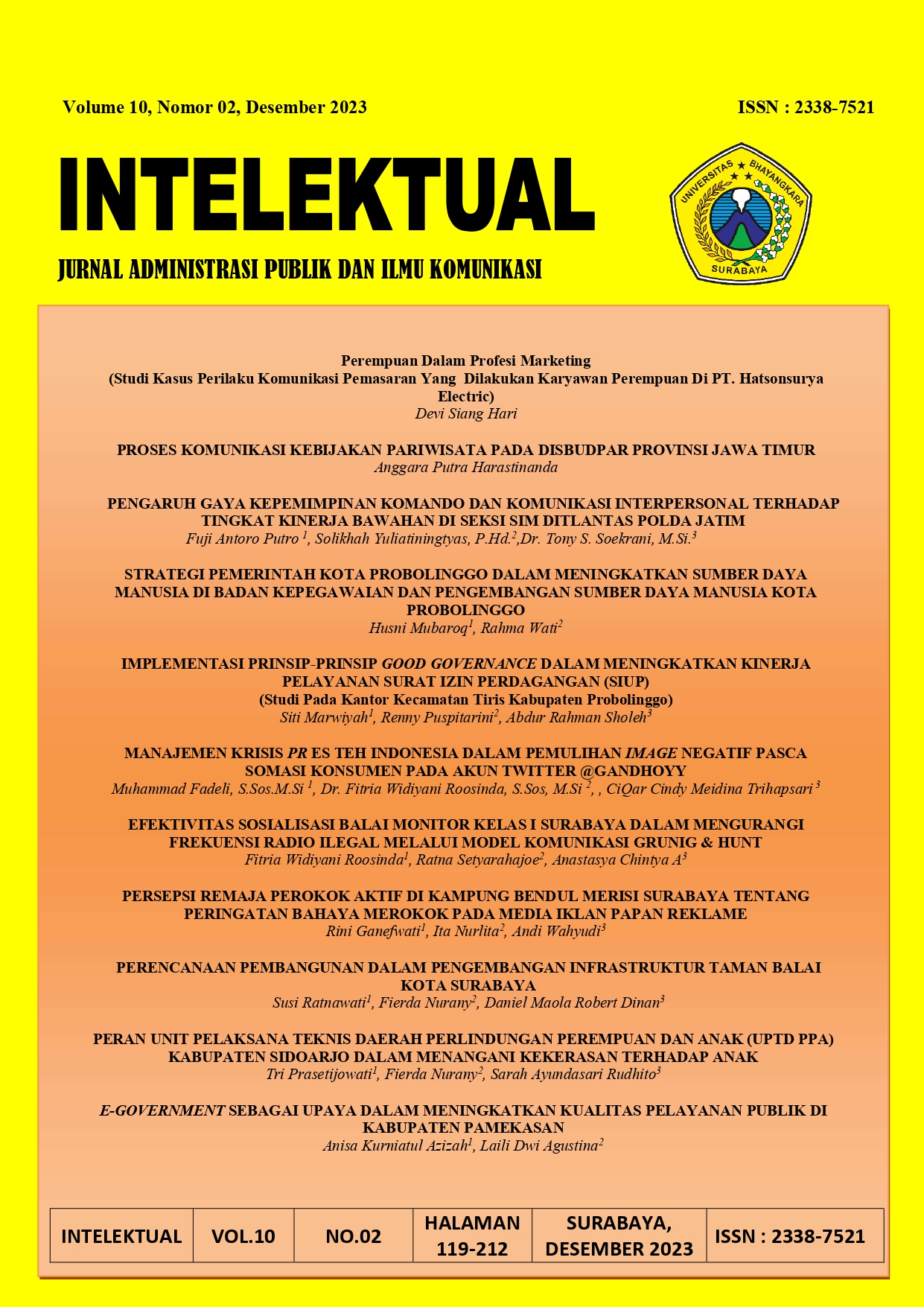PROSES KOMUNIKASI KEBIJAKAN PARIWISATA PADA DISBUDPAR PROVINSI JAWA TIMUR
Main Article Content
Abstract
After the Covid-19 Pandemic in 2022 the tourism sector has reopened so that it requires an active role from government agencies to restore the tourism sector. One of these government agencies is DISBUDPAR East Java Province. To carry out its policies, of course, organizational communication is needed. To see how the internal communication of the East Java Province DISBUDPAR organization runs, research is needed to see the tourism policy communication process. The purpose of this study is to determine the internal organizational communication process related to tourism policy at DISBUDPAR of East Java Province and see the similarities and differences in the period before and after the Covid-19 pandemic (2019-2022). This research uses organizational communication theory that focuses on internal institutions and government communication that focuses on staff management. The type of research is qualitative with a case study approach. Data collection methods are interviews with four employees of DISBUDPAR East Java Province, observation and documentation. The results of the study are communication in DISBUDPAR East Java Province is still dominated by one-way communication, namely orders from leaders to their members. During the period before to after the Covid-19 pandemic (2019-2022) there were several changes in the DISBUDPAR of East Java Province related to tourism policy communication. From this research, it can be seen how the organizational communication process within the internal DISBUDPAR of East Java Province and what has changed and remains consistent in the communication process during the period before to after the Covid-19 pandemic (2019-2022).
Article Details

This work is licensed under a Creative Commons Attribution 4.0 International License.
Authors who publish with Intelektual: Jurnal Administrasi Publik dan Ilmu Komunikasi agree to the following terms:
- The author retains copyright licensed under Creative Commons Attribution-NonCommercial 4.0 (CC BY-NC 4.0), which allows others to remix, adapt, and expand on the author's work non-commercially, and even if someone else's new work must also acknowledge the author and is non-commercial, they do not need to license their derivative works on the same terms.
- Authors are permitted and encouraged to post their work online (e.g., in institutional repositories or on their websites) before and during the submission process, as this can lead to productive exchange, as well as earlier and greater citation of the published work ( See Impact of Open Access). Authors can archive preprints and postprints or publisher/PDF versions.

